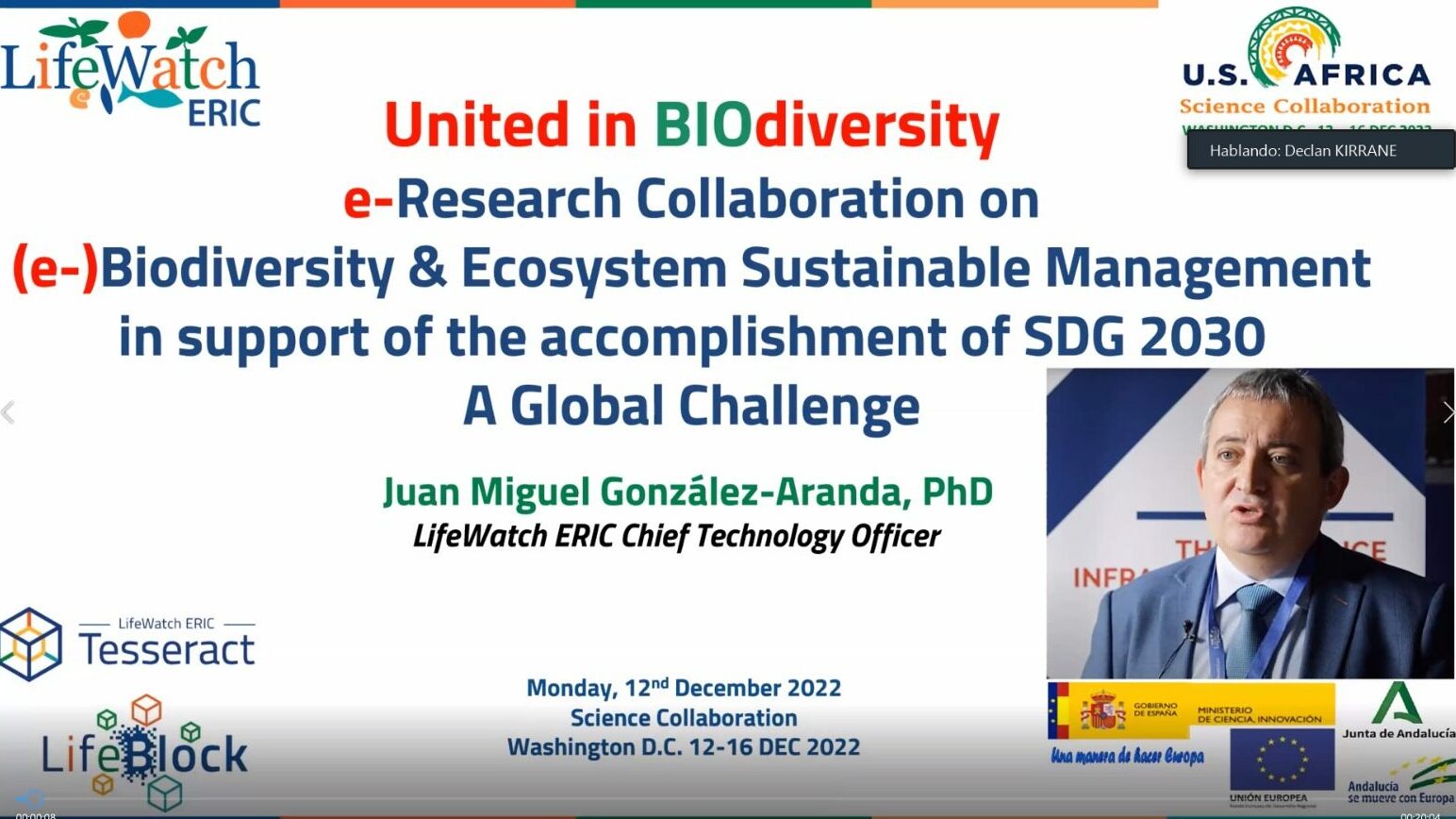
LifeWatch ERIC continued its contribution to COP15 on 12 December, when Chief Technology Officer Juan Miguel González-Aranda gave a presentation to the US-Africa Summit in Washington D.C. entitled “United in BIOdiversity: e-Research Collaboration on (e-)Biodiversity & Ecosystem Sustainable Management in support of the accomplishment of SDG 2030. A Global Challenge”.
Dr González-Aranda’s thesis is that we are moving towards the Sixth Great Extinction, and that it is of essential importance that we address our current environmental challenges and provide knowledge-based strategic solutions to biodiversity loss. LifeWatch ERIC’s Big Data tools allow researchers to assess and monitor ecosystem functions and then provide science-based knowledge so decision-makers can intervene to restore the biodiversity on which human wellbeing depends.
The US-Africa Summit, 12–16 December, is a side event to the 15th Conference of the parties in Montreal, Canada, the main objective of which is to adopt the post-2020 global biodiversity framework, released in July 2021, and the Aichi Biodiversity Targets. COP15 recognises that urgent policy action globally, regionally and nationally is required to transform economic, social and financial models to reverse the trends that have exacerbated biodiversity loss.